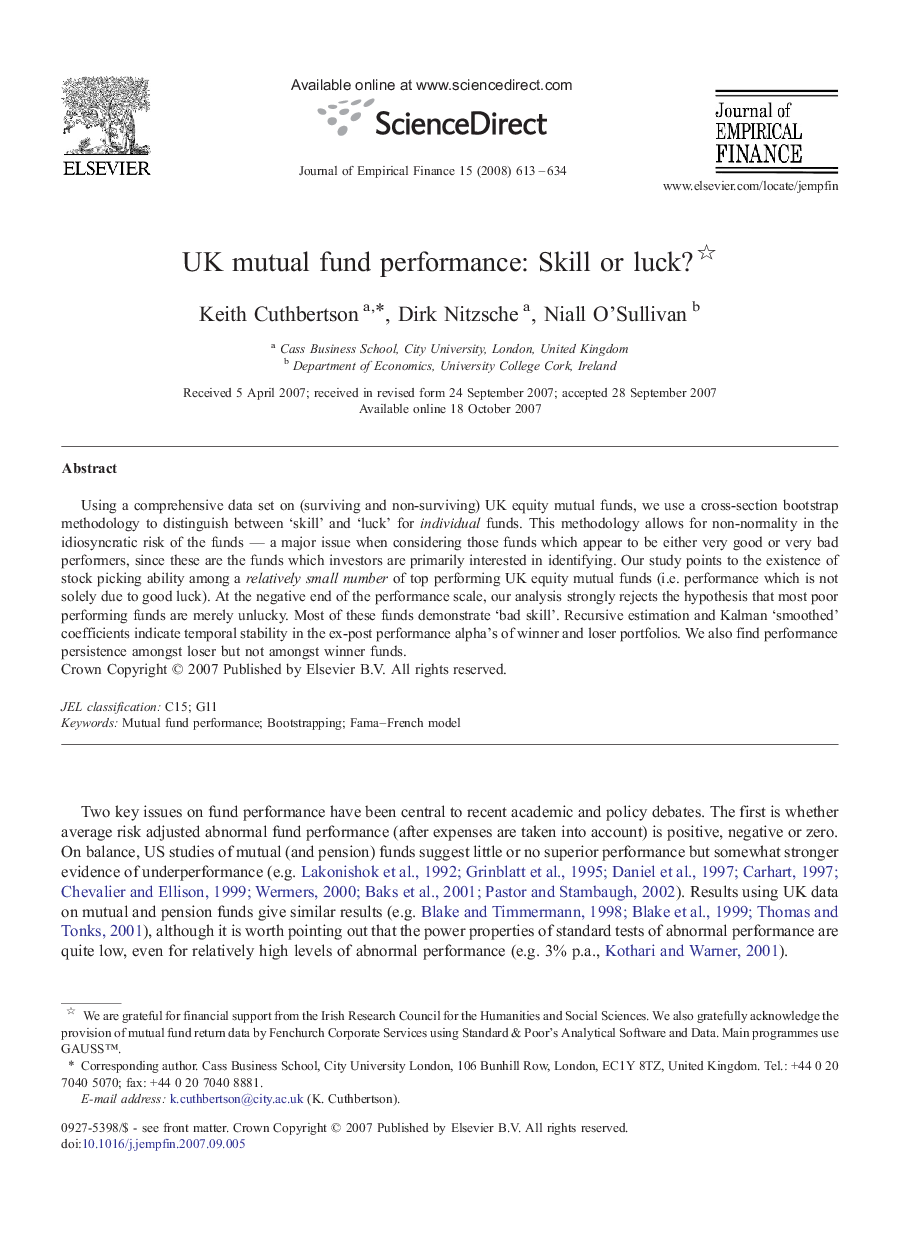| Article ID | Journal | Published Year | Pages | File Type |
|---|---|---|---|---|
| 958702 | Journal of Empirical Finance | 2008 | 22 Pages |
Using a comprehensive data set on (surviving and non-surviving) UK equity mutual funds, we use a cross-section bootstrap methodology to distinguish between ‘skill’ and ‘luck’ for individual funds. This methodology allows for non-normality in the idiosyncratic risk of the funds — a major issue when considering those funds which appear to be either very good or very bad performers, since these are the funds which investors are primarily interested in identifying. Our study points to the existence of stock picking ability among a relatively small number of top performing UK equity mutual funds (i.e. performance which is not solely due to good luck). At the negative end of the performance scale, our analysis strongly rejects the hypothesis that most poor performing funds are merely unlucky. Most of these funds demonstrate ‘bad skill’. Recursive estimation and Kalman ‘smoothed’ coefficients indicate temporal stability in the ex-post performance alpha's of winner and loser portfolios. We also find performance persistence amongst loser but not amongst winner funds.
